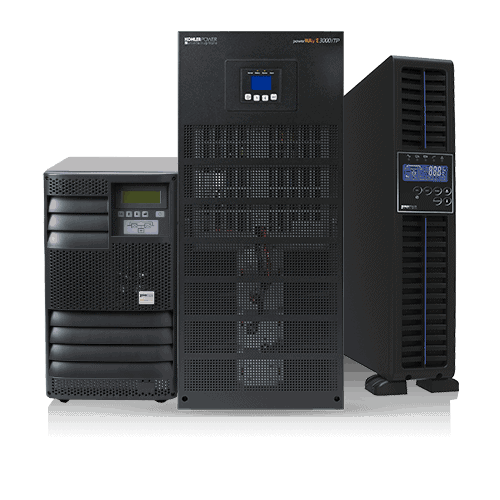A modern uninterruptible power supply (UPS) will comprehensively protect your critical load from all types of power blackout and disturbances. However, your success in obtaining the right UPS product for your particular installation depends on your understanding of a number of key UPS-related topics.
Your goal should be a UPS that’s adequately specified to meet your site’s demands, both now and into the future, without costing more than it should to purchase or run – but hitting the right balance between specification and cost can be challenging if you’re not familiar with the technical, commercial and logistics issues related to UPSs, or haven’t worked with the products for a while.
That’s why well-resourced suppliers like KUP offer training courses as an integral part of their support. Their UPS Academy, for example, offers free one-day courses that provide newly-qualified and graduate engineers with the basics, plus some technical information, which will equip them to specify UPS systems for critical applications. This course has been approved by the Chartered Institute of Building Services Engineers (CIBSE) for CPD and will count towards your CPD hours. It covers not only UPSs but also the power networks they are connected into. Before entering into any detail, it’s essential to first address the most fundamental question: What level of infrastructure performance, or uptime, do you actually require? A data centre providing a basic backup facility will have very different availability expectations to one with responsibility for a chain of banking halls and ATM machines – and this is reflected in the Uptime Institute’s Tier Classification system, which is covered in the course.
UPS fundamentals are covered, particularly the internal components such as the rectifier, inverter and other key parts. VRLA batteries and how to size a battery system are included in the discussion. UPS topologies are then reviewed, with comparison between standalone and modular implementations, and their implications for fault resilience and scalability. Redundant and parallel system choices are explained, as are MTBF and MTTR and their impact on availability.
The image above shows the UPS Academy held in Exeter
Attention then turns to the installation of UPS systems into the power infrastructure and includes topics such as the Neutral-Earth reference point for UPS systems, and electrical configuration of sites in ‘floating’ conditions. Transformers and their use in circuits, and fault clearance in UPS circuits are also covered.
KUP also offers free one-hour ‘lunch-time’ CPD seminars, designed to help consultants and electrical engineers keep up to date with the latest power protection specification and selection requirements, and the latest technology available. The content of the seminar has been independently certified by CIBSE as conforming to CPD guidelines. Topics include UPS fundamentals, evolution, technologies, rightsizing and selection, together with battery management, causes of failure and maintenance recommendations.
Overall, attendees of the UPS Academy have felt that the content has been well-presented, and invaluable in informing their role of UPS specification and selection.
You can register online to attend the next UPS Academy training course, or alternatively if you would like to arrange a lunchtime CPD seminar at your office, simply email [email protected].






